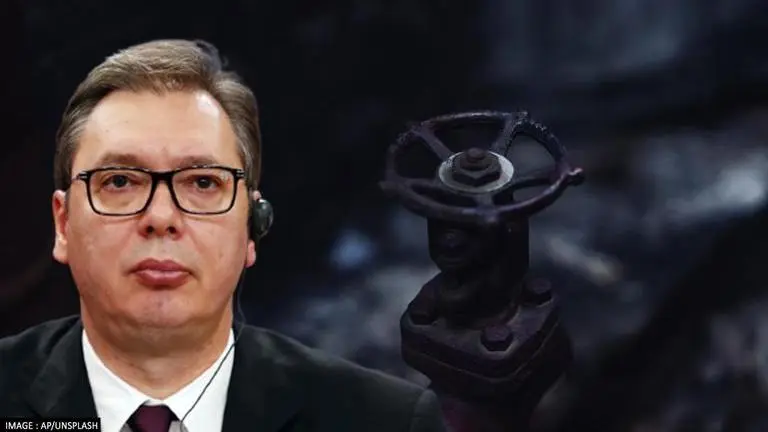Updated 5 June 2022 at 22:20 IST
Serbia explores alternatives amid struggle for oil import amid EU sanctions on Russia
Serbian oil and gas company, Naftna Industrija Srbije, said it could not able to receive crude oil through the Jadranski naftovod pipeline amid EU's sanctions.
- World News
- 3 min read

Nearly two days after the European Union (EU) imposed a ban on the Russian oil, Serbian multinational oil and gas company, Naftna Industrija Srbije (NIS), said that it could not receive crude oil through the Jadranski naftovod (JANAF) pipeline. While answering a query, the Ministry of Mining and Energy said Serbia is not the only European country that has been affected by the new package of EU sanctions, but several countries are facing similar challenges. However, the ministry said that it is making every effort to ensure a secure supply.
"The new package of sanctions prohibits the supply of Russian crude oil via any port, by sea, and NIS is supplied with crude oil that is delivered by tankers to the port of Omisalj (in Croatia). This means that there is no possibility to deliver more Russian crude oil to the Pancevo Refinery," Rs.n1info quoted the ministry as saying.
"NIS could import all other types of crude oil except Russian, as it had already imported oil from Iraq and some other countries in the previous period," it added.
EU sanctions on Russian energy
Notably, the EU imposed fresh sanctions on Russian energy and the country's largest bank, Sberbank, as retaliation for Russian President Vladimir Putin's invasion of Ukraine.
Advertisement
"We have just adopted our 6th package of tough sanctions against Russia and will keep the pressure on. Europe will support Ukraine as long as it takes, with all the financial, technical and humanitarian aid possible. We will help them rebuild, reform and modernise," President of the EU Commission, Ursula von der Leyen said following the EU's historic decision. Earlier in April, it imposed similar sanctions on Russian coal, worth 4 billion euros ($4.39 billion) per year.
Russia-Ukraine war
It is pertinent to mention here that Russia launched a full-fledged war against Ukraine nearly two days after Vladimir Putin signed a decree recognising the independence of the Donetsk and Luhansk regions, on February 24. Since then, it has been bombarding several cities in Ukraine, resulting in the killing of thousands of civilians and loss of infrastructure.
Advertisement
Earlier on Tuesday, Moscow's upper parliament house speaker said Russia is ready to hold negotiations with Kyiv to restore peace in the region. She said that the Putin administration is open to talks with Ukraine and signing agreements that would lead to peace. She said that the Russian government is ready to solve the issue diplomatically and added a will for this is needed on both sides. However, she claimed that the Zelenskyy administration has shown no interest in resolving the issue.
Image: AP/Unsplash
Published By : Ajeet Kumar
Published On: 5 June 2022 at 22:20 IST
